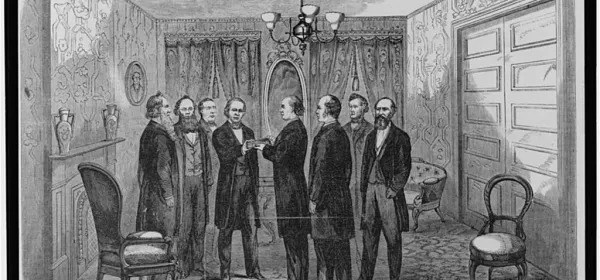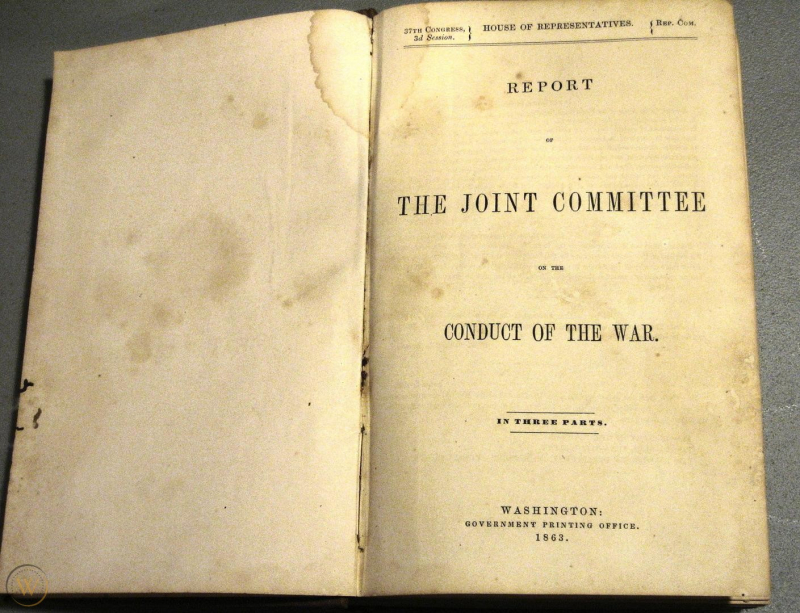Joint Committee on the Conduct of War
The Battle of Ball's Bluff resulted in the creation of the Joint Committee on the Conduct of War. On October 21, 1861, Union troops suffered a devastating defeat in the second major engagement of the Civil War. The Battle of Ball's Bluff in Virginia produced the war's first martyr and led to the creation of a Congressional committee to monitor the conduct of the war. The Joint Committee was created in December 1861 following the Federal disaster at Ball's Bluff and during its four years of existence evaluated a variety of war-related activities and enterprises. The Joint Committee on the Conduct of War appeared as one of the facts about the Battle of Ball's Bluff.
The ensuing outcry, and a desire to learn why Federal forces had lost battles at Bull Run (Manassas), Wilson's Creek, and Ball's Bluff, led to the establishment of the Joint Committee on the Conduct of the War, which would bedevil Union officers for the remainder of the war (particularly those who were Democrats) and contribute to nasty political infighting among the generals in the high command. After the embarrassing defeat at Ball's Bluff, the Confederacy's third major defeat of the war, Congressional Republicans understood enough of what they perceived to be the incompetence of the officers Lincoln had appointed and determined to play a greater role in waging the war. On December 9, 1861, they formed the Joint Committee on the Conduct of War to oversee the conduct of the Army and Navy. During the war, the Committee was chaired by a Radical Republican Senator from Ohio, Benjamin Wade. The Radical Republicans wanted to pursue a more active war line than President Lincoln and used the Commission to oversee generals and promote those they believed would support tough war policies.










